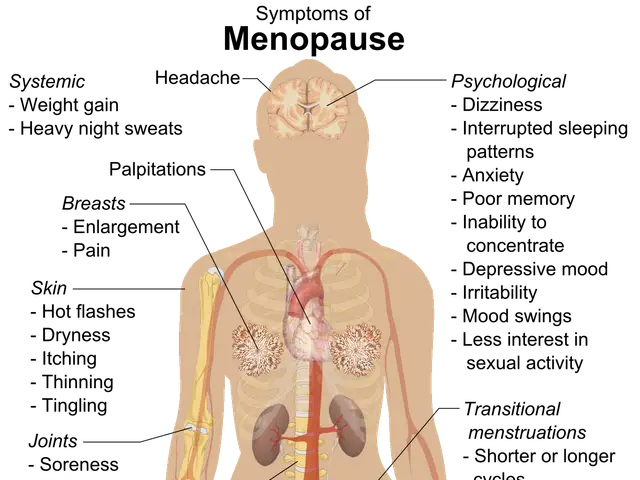Opiate Withdrawal: Treatment Options and Strategies
Withdrawal from opiates can be a challenging and potentially life-threatening process. However, there are natural strategies that can help alleviate discomfort and support the body during detox. While professional medical detox is the safest and most effective approach, these methods can offer some relief at home.
Hydration is key. Aim for 8 to 10 glasses of water daily to help flush toxins and maintain optimal body function. Herbal teas and natural juices can also support organ health and detoxification. Avoid sugary sports drinks.
A balanced diet is essential for the body's healing during withdrawal. Eat whole, nutrient-rich foods to provide energy and repair tissues. Gradually build a diet rich in fruits, vegetables, lean proteins, and whole grains.
Rest and sleep support are crucial for recovery. Use natural aids like melatonin, a sleep hormone, to combat insomnia and restlessness common in opiate detox. Good sleep hygiene practices are also vital.
Herbal remedies may help reduce symptoms. St. John’s Wort can relieve tremors and heaviness in limbs, while Chinese herbal treatments like Tai-Kang-Ning and U’finer have shown promise in moderating withdrawal symptoms and aiding brain repair. Acupuncture may also reduce withdrawal discomfort by stimulating the nervous system.
Gentle exercise, such as walking or yoga, can boost metabolism and blood flow, helping process and eliminate toxins. Exercise also improves mood and reduces muscle aches.
Stress management techniques, like meditation, deep breathing, or gentle stretching, can help manage anxiety and irritability during withdrawal.
However, it's important to note that natural remedies and supplements are not FDA-regulated and may interact with other medications or conditions. Severe withdrawal symptoms, uncontrollable cravings, or medical complications warrant immediate professional help.
Medications like methadone or buprenorphine coupled with behavioral therapies remain the most effective treatments for moderate to severe opiate dependence. Other medications, such as Clonidine, Lofexidine, Loperamide (Imodium), Methadone, buprenorphine, and Naltrexone, can help manage withdrawal symptoms from opioid medications.
For those seeking to discontinue opiate use, including heroin use, medical advice is strongly recommended. The Substance Abuse and Mental Health Services Administration (SAMHSA) hotline at 800-662-HELP (4357) is available 24 hours a day, year-round, for anyone who wants help managing a dependency.
In summary, hydration, nutrition, rest, herbal supplements, gentle exercise, and stress management are key natural strategies to ease opiate withdrawal symptoms at home. However, professional medical detox and support are strongly recommended for safety and long-term success.
- Maintaining good health is vital during opiate withdrawal, and ensuring hydration is a crucial part, with an aim of 8 to 10 glasses of water daily.
- Herbal teas and natural juices can support organ health and detoxification, while sugary sports drinks should be avoided.
- A balanced diet is essential for the body's healing during withdrawal, with an emphasis on whole, nutrient-rich foods.
- Gradually building a diet rich in fruits, vegetables, lean proteins, and whole grains is recommended.
- Rest and sleep support are crucial for recovery, and natural aids like melatonin can combat insomnia and restlessness common in opiate detox.
- Good sleep hygiene practices are also vital for a good night's sleep during opiate detox.
- Herbal remedies may help reduce symptoms, such as St. John's Wort for tremors and Chinese herbal treatments like Tai-Kang-Ning and U’finer for moderating withdrawal symptoms and aiding brain repair.
- Acupuncture may reduce withdrawal discomfort by stimulating the nervous system.
- Gentle exercise, such as walking or yoga, can boost metabolism, blood flow, and help process and eliminate toxins.
- Stress management techniques, like meditation, deep breathing, or gentle stretching, can help manage anxiety and irritability during withdrawal.
- It's important to note that natural remedies and supplements are not FDA-regulated and may interact with other medications or conditions.
- Severe withdrawal symptoms, uncontrollable cravings, or medical complications warrant immediate professional help.
- Medications like methadone or buprenorphine coupled with behavioral therapies remain the most effective treatments for moderate to severe opiate dependence.
- For those seeking to discontinue opiate use, including heroin use, medical advice is strongly recommended.
- The Substance Abuse and Mental Health Services Administration (SAMHSA) hotline at 800-662-HELP (4357) is available 24 hours a day, year-round, for anyone who wants help managing a dependency.







